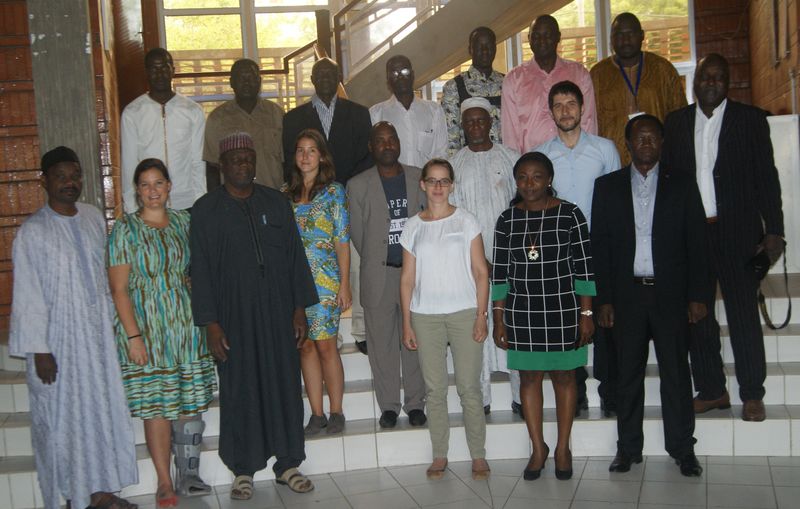To get participants on the same page of understanding of assignment given to consultants, the terms of reference of the each were presented. From this exposé, it was clear that consultants were required to prepare a project document that included a log frame and implementation arrangements as deliverable at the end of the consultancy.
Then, two presentations were respectively made by the expert in hydrology and the project development expert on their duties. The first expert presented the methodology of his work focused on consulting secondary data and working with LCBC experts to collect and analyse existing information to evaluate and propose an optimal hydrometeorogical network, identify key stakeholders and community radios, and key economic and livelihood activities and risks. The second clearly explained that the writing part which will entail mobilising and analysing existing information, capitalising report of hydrology expert, and preparing a project proposal with a logical framework.
Discussions that followed in plenary pointed out the need to avoid duplication with the World Bank project on supported flood management currently ongoing in the Logone sub-basin, on the Cameroon side of the Lake Chad Basin, as well as the need to identify a target donor /funder. They also permitted participants to understand that floods in Ndjamena were influenced more by the discharge from the Chari river system which needed to be considered in the project.
A roadmap for the next steps of the process was discussed and approved. Thus, the final inception report is expected by the end of July, whereas the full project document with comments from LCBC and another workshop for approval by September 2016.
As a reminder, since 2014 within the context of the implementation of the Water, Climate and Development Program (WACDEP), GWP Central Africa in collaboration with LCBC executive secretariat, developed a concept note for elaboration of a no/low regret project with proposed title ““Strengthening Hydro meteorological Information and Early Warning Systems (SHMI-EWS) in the Lake Chad Basin”.
